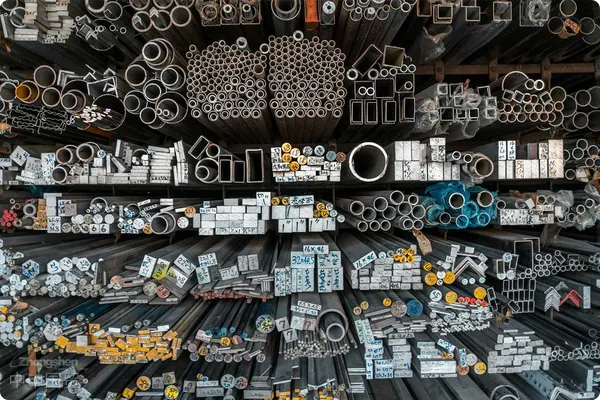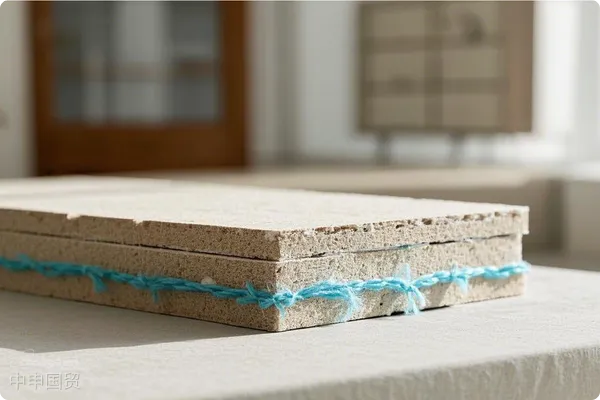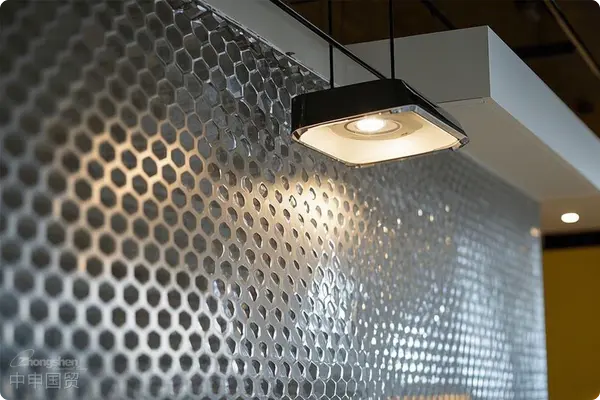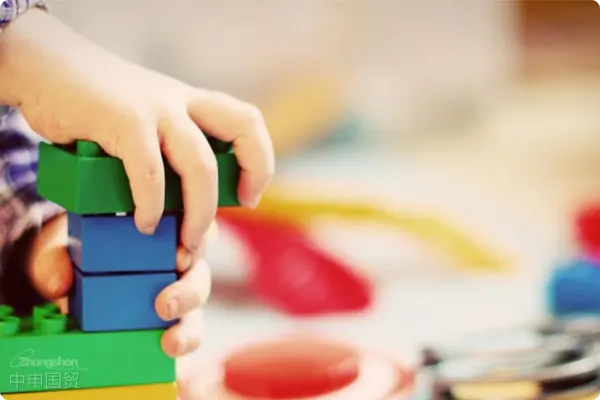- Shanghai Zhongshen International Trade Co., Ltd. - Two decades of trade agency expertise.
- Service Hotline: 139 1787 2118
Want to export ceramics to Vietnam? Then you need to understand the rules of this Southeast Asian mini-giant! From regulatory agencies to export certifications, this article details all key information about Vietnams ceramic market.
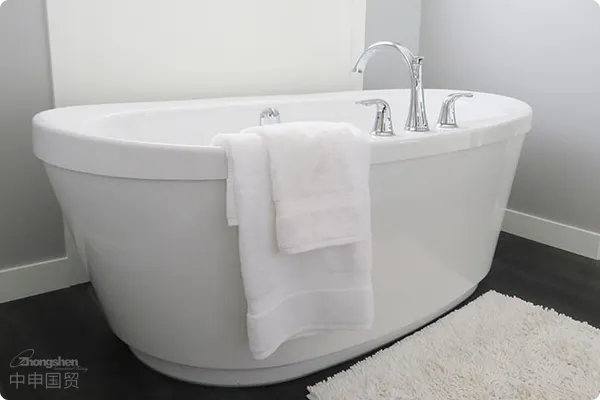
Vietnams regulatory agencies: Who makes the rules?
Vietnam, this Southeast Asian economic mini-giant, has standards for its construction and sanitary ceramic products set by the Directorate for Standards, Metrology and Quality under the Ministry of Science and Technology. This agency is not only a standard-setter but also Vietnams WTO/TBT national enquiry point. Other departments closely related to TBT work include the Ministry of Construction and the Ministry of Natural Resources and Environment.
Technical regulations and standards: What should be noted when exporting ceramics to Vietnam?
At the end of 2019, Vietnams Ministry of Construction issued a technical regulation coded QCVN16:2019/BXD, replacing the previous QCVN16:2017/BXD. This means that building materials, products, and goods exported to Vietnam need to undergo conformity assessment and related certifications according to this new regulation.
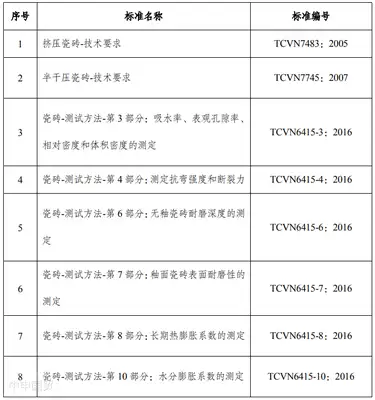
Conformity assessment procedures: How can products be sold in Vietnam?
To sell your building materials, products, and goods in Vietnam, conformity assessment is required first. However, not just any agency can perform this - it must be conducted by testing organizations designated or recognized by Vietnams Ministry of Construction, and these products must comply with Vietnams technical standards.
Vietnam provides enterprises with three conformity assessment methods:
Sample testing:It is applicable to overseas manufacturing enterprises that have established a quality management system in accordance with ISO9001. This method mainly involves testing samples of each import to ensure they meet Vietnams technical standards. The obtained certificate of conformity is valid for 1 year and is only valid for products and goods of the same type and category as those sampled and tested.
Type testing and production process evaluation:It is applicable to domestic and foreign manufacturers that have established and maintained a stable quality management system in accordance with ISO 9001. The main feature of this method is that sampling tests are carried out every year within a validity period of 3 years, combined with an assessment of the production process.
Testing and evaluation of product and goods batches:Suitable for enterprises with smaller shipment volumes. This method involves one-time testing and evaluation for each batch of products and goods, with the obtained certificate of conformity being valid only for the single batch sampled.
Friendly reminder: Dont forget this step!
If you want to export your building sanitary ceramic products to Vietnam, remember that you first need to conduct testing in Vietnam and obtain a certificate of conformity. To avoid any export delays, its recommended to conduct testing in advance.
In Vietnams opportunity-filled market, understanding and following its technical regulations and conformity assessment procedures is key. Only in this way can you ensure your ceramic products succeed in the Vietnamese market.
Learn more about Vietnams relevant regulations:
Related Recommendations
? 2025. All Rights Reserved. Shanghai ICP No. 2023007705-2  PSB Record: Shanghai No.31011502009912
PSB Record: Shanghai No.31011502009912

